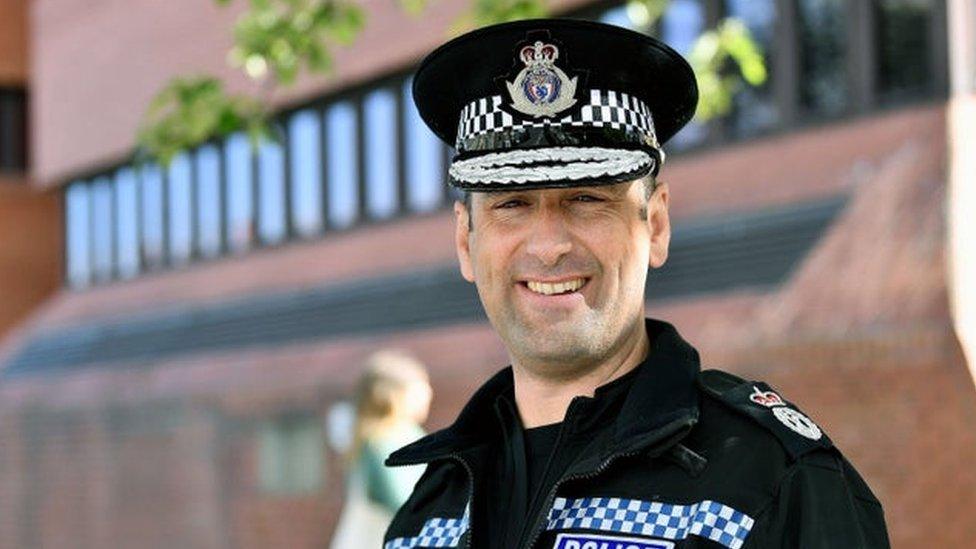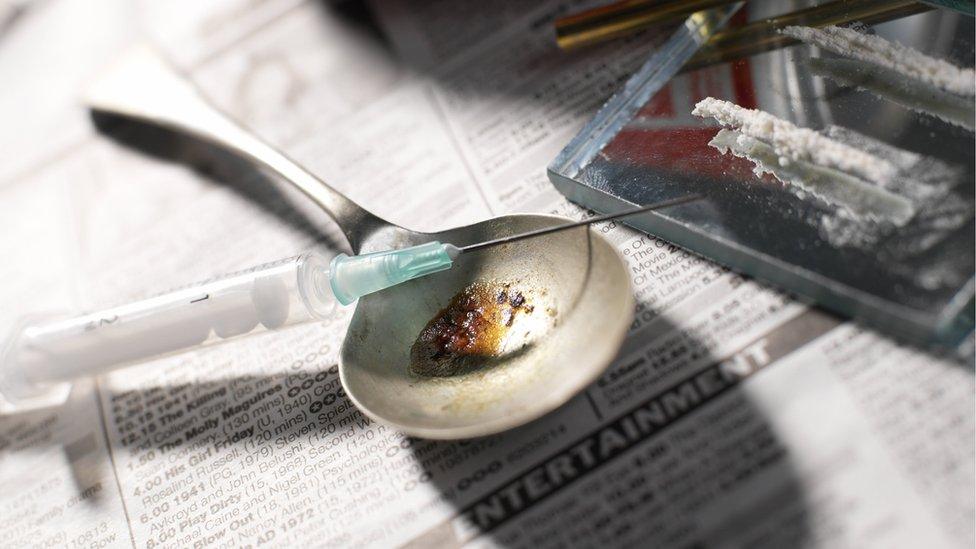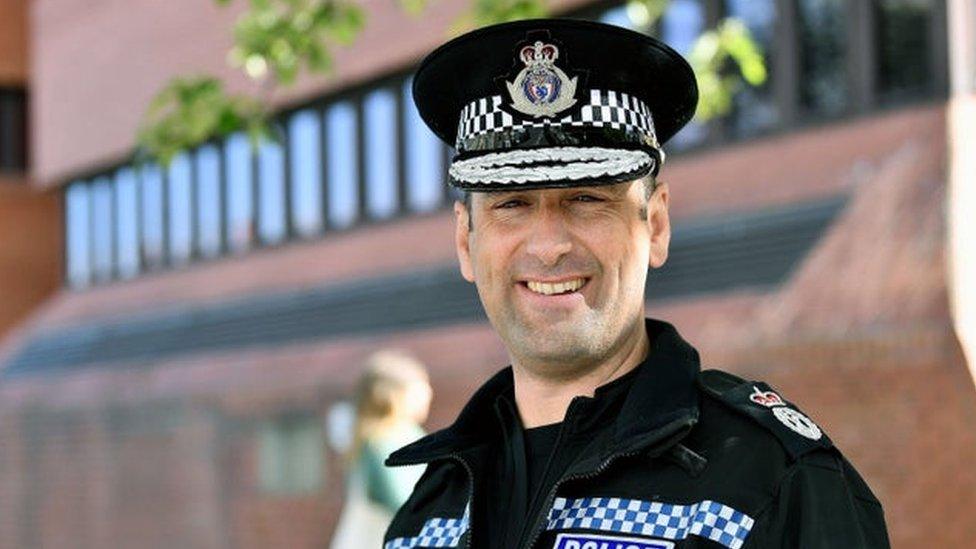Cleveland police chief says criminalising drug addiction is causing deaths
- Published

Cleveland Chief Constable Richard Lewis said drug addiction was a health issue rather than solely criminal
A police chief says treating drug addiction as a criminal matter is causing "entirely preventable" deaths.
Writing in The Guardian, external, Cleveland Chief Constable Richard Lewis said the "war on drugs" was actually a "public health crisis".
He said a "fundamental change of approach" was required, including a national roll-out of a scheme which saw addicts given heroin.
The Home Office said it was taking a "wide-ranging approach" to drug use.
Mr Lewis, who is leaving Cleveland after two years in the role to join Dyfed-Powys Police, said focusing on drug addiction as a crime had been "counterproductive".
He said the "war on drugs" had been waged for 50 years, but figures from 2020 showed Teesside had 123 drug-related deaths, "the highest number since figures have been collated".
"The vast majority of those deaths would have been entirely preventable," he said, adding: "In 21 years of police service I have slowly, perhaps too slowly, come to the conclusion that framing this crisis as a criminal justice problem has not simply been unhelpful, but counterproductive.
"This nationwide epidemic is a public health crisis."

Those taking part in the heroin-assisted treatment programme are high-risk addicts who commit crime to fund their drug use and for whom other treatments have not worked
He said major investment in drug support services was needed, as well as a national roll-out of the heroin-assisted treatment programme which has been piloted in Middlesbrough.
The scheme provides supervised injections to high-risk addicts in a bid to stop them committing crime to fund their drug use.
Mr Lewis said: "Most of us have allowed the message on drugs being bad (which they clearly are) to be conflated with addicts themselves being bad simply for using drugs.
"Some of the most odious and evil acts I've encountered in my police service have been perpetrated by drug addicts; but this is not universally true.
"Many have made bad choices in their lives - but by helping people like [them], we help ourselves."
Cleveland Police and Crime Commissioner Steve Turner, said he agreed with Mr Lewis and the heroin treatment scheme should be funded by the health sector rather than police.
He told BBC Radio Tees: "In the crime arena we still have to address the challenges and the dealers and the supply, but there is definitely more work needed within the public health sector to ensure we are providing appropriate support for people who want to come off [drugs] and want to their change their lifestyle."
A Home Office spokesman said it was investing in pilot schemes around the country under the Project Adder, external banner, including in Middlesbrough.
He said: "Drugs damage communities and ruin lives. We must prevent drug use in our communities, support people through treatment and recovery, and tackle the supply of illegal drugs.
"Through Project Adder we are taking a wide-ranging and integrated approach to prevent drug use and support people dependent on drugs through treatment and recovery."

Follow BBC North East & Cumbria on Twitter, external, Facebook, external and Instagram, external. Send your story ideas to northeastandcumbria@bbc.co.uk, external.
- Published20 August 2020

- Published31 July 2021

- Published24 February 2014